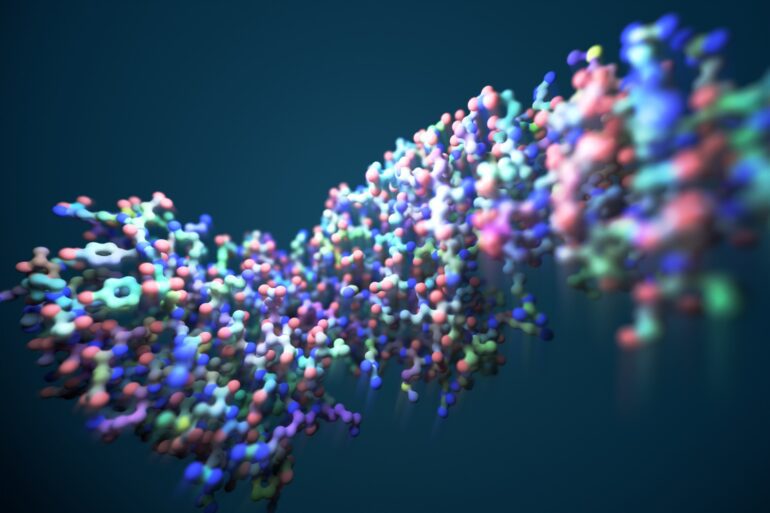TL;DR:
- The survey conducted by Cradle and Bits in Bio reveals key insights into biodevelopers’ methods and priorities.
- Coding skills have become essential for biologists, with 87% of wet lab scientists writing code.
- Python is the most commonly used coding language (97%), followed by Shell, R, SQL, and HTML/CSS.
- Nearly three-quarters of biodevelopers employ machine learning in their work, with 82% expressing interest in future adoption.
- Protein engineering is a top priority, with 71% currently engaged or curious to explore it further.
- Biodevelopers frequently write scripts to automate workflows and program data engineering.
- Python is the preferred language for data analysis, followed by Shell, R, SQL, and HTML/CSS.
- Machine learning usage is expected to increase, with 73% currently utilizing it and 82% interested in future adoption.
- Cradle plays a crucial role in supporting biodevelopers by facilitating protein design and programming.
- Synthetic biology sector relies on coding skills, machine learning, and protein engineering for advancements and innovation.
Main AI News:
A recent survey conducted by Cradle and Bits in Bio sheds light on the evolving methods and priorities of biodevelopers, highlighting the increasing significance of coding skills, machine learning, and protein engineering in the synthetic biology sector. With over 150 participants, this survey offers valuable insights into the current trends shaping the field.
The survey findings showcase a paradigm shift, with coding becoming an essential skill for biologists. A remarkable 87% of wet lab scientists now write code, underscoring the significance of programming in their work. Python emerges as the dominant coding language, utilized by an overwhelming 97% of respondents, followed by Shell (62%), R (53%), SQL (41%), and HTML/CSS (13%).
Moreover, the survey reveals that nearly three-quarters of biodevelopers are currently leveraging machine learning in their projects. Of those who have yet to incorporate it, an impressive 82% express interest in adopting machine learning in the future. This trend indicates a growing recognition of the potential and value that machine learning brings to biodevelopment endeavors.
Notably, protein engineering emerges as a key focus for biodevelopers, with 71% already engaged in protein engineering or expressing curiosity to explore it further. Encompassing areas such as enzymes, antibodies, short peptides, and gene regulatory proteins, protein engineering presents vast opportunities for innovation and advancement in the coming months.
The survey also delves into the coding practices of biodevelopers, uncovering that 55% of respondents write scripts to automate workflows on a weekly basis, while 39% program data engineering or pipelines regularly. Impressively, 74% of respondents acquired their coding skills through self-teaching, with 63% learning in educational settings. Python remains the most widely adopted coding language, serving as the go-to choice for data analysis by 97% of respondents. Shell (Bash/Powershell) ranks second with 62% usage, followed by R (53%), SQL (41%), and HTML/CSS (13%).
Furthermore, the survey indicates a rising trend in the adoption of machine learning, with 73% of biodevelopers currently leveraging its capabilities. Among those utilizing machine learning, 26% employ it on a weekly basis, while 20% utilize it monthly. Looking ahead, an overwhelming majority of 82% of non-users express interest in incorporating machine learning into their work. Additionally, 80% of individuals working in an in silico role are currently utilizing machine learning, along with 68% of wet lab scientists.
The survey findings emphasize the pivotal role of Cradle, a platform designed to facilitate protein design and programming, in meeting the evolving needs of biodevelopers. By gaining insights into the methods and priorities of this dynamic field, Cradle and other synthetic biology companies can develop cutting-edge tools and technologies that empower scientists and catalyze advancements.
Conlcusion:
The findings from the survey conducted by Cradle and Bits in Bio have significant implications for the market. The increasing importance of coding skills, machine learning, and protein engineering in the biodevelopment landscape indicates a growing demand for tools and technologies that cater to these areas. As biologists embrace coding and machine learning, there is a clear need for advanced software solutions, programming resources, and platforms that facilitate protein engineering.
Companies operating in the synthetic biology sector can capitalize on these trends by developing innovative products and services that align with the evolving needs of biodevelopers. By recognizing and addressing the demand for coding expertise, machine learning integration, and protein engineering capabilities, businesses have the opportunity to establish a strong market presence and position themselves as key contributors to the ever-expanding biodevelopment industry.

